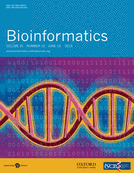Birds of a Feather (BoF) - ISMB/ECCB 2017
BoF A1: The Computational Biology Education (CoBE) COSI BOF
Room: Meeting Hall IA Saturday, July 22 (12:45 pm - 1:45 pm)
Organizers:
Fran Lewitter, Whitehead Institute (This email address is being protected from spambots. You need JavaScript enabled to view it.)
Teresa Attwood, University of Manchester
Lonnie Welch, Ohio University
Presentation Overview:
A major goal of CoBE is to foster a collaborative community in which bioscientists can share bioinformatics education/training resources and experiences. Thus, we invite you to join us for an interactive discussion with the ISCB education committee, GOBLET and others to kickstart this community. Please come with your ideas.
BoF A2: JPI Career Development: "On Leadership and Management"
Room: Meeting Hall IB Saturday, July 22 (12:45 pm - 1:45 pm)
Organizer:
Lucia Peixoto, Washington State University (This email address is being protected from spambots. You need JavaScript enabled to view it.)
Presentation Overview:
In this roundtable discussion, group leaders (established and new) will provide guidance on how to lead your team effectively, manage your people and your time to maximize productivity and quality of life.
Panelists:
Larry Hunter, PhD. Director Computational Bioscience Program. Professor, Department of Pharmacology and Computer Science. University of Colorado.
Janet Kelso, PhD. Group leader of the Minerva Research Group for Bioinformatics at the Max Planck Institute for Evolutionary Anthropology.
Nils Gehlenborg, PhD. Assistant Professor. Department of Biomedical Informatics. Harvard Medical School.
BoF A3: ERC funding schemes
Room: North Hall Saturday, July 22 (12:45 pm - 1:45 pm)
Organizer:
Konstantina Topouridou, European Research Council Executive Agency (This email address is being protected from spambots. You need JavaScript enabled to view it.)
Presentation Overview:
Presenting ERC funding schemes. There will be a panel discussion with ERC grantees.
BoF A4: Promoting gender diversity in Bioinformatics
Room: Terrace 1 Saturday, July 22 (12:45 pm - 1:45 pm)
Organizer:
Malvika Sharan, European Molecular Biology Laboratory, Heidelberg (This email address is being protected from spambots. You need JavaScript enabled to view it.)
Presentation Overview:
One of the major concerns in scientific fields is the lack of gender diversity. In this BoF, using the format of unseminars (http://dx.doi.org/10.1371/journal.pcbi.1003905), I would like to discuss various causes, challenges and possible solutions to combat this problem. Furthermore, I aim to increase awareness among the bioinformatics community on this issue.
BoF A5: Diagnostic relevance of transcriptome sequencing for rare Mendelian diseases
Room: Panorama Saturday, July 22 (12:45 pm - 1:45 pm)
Organizer:
Numrah Fadra, University of Minnesota, Mayo Clinic (This email address is being protected from spambots. You need JavaScript enabled to view it. )
Presentation Overview:
Development of computational techniques using a combination of advanced bioinformatics approaches as well as machine learning models is extremely important for achieving maximum diagnostic value for rare Mendelian diseases. I would like to discuss the approaches used worldwide clinically to address the problem of understanding the genetic foundations of rare genetic disorders.
BoF A6: Future of phosphoproteomics
Room:Meeting Hall V Saturday, July 22 (12:45 pm - 1:45 pm)
Organizer:
Jenny Vuong, Sandeep Kaur
CSIRO, Garvan, UNSW
Presentation Overview:
Advancement in high-throughput mass spectrometry allows the studying of phosphoproteomic time-series events in unprecedented detail, producing data on >10,000 molecular events. This meeting has the goal to discuss the future of handling large-scale proteomics time-series data, in the context of visualization methods/tools, modelling, etc. Come and open your brain!
BoF B1: JPI Career Development: "Becoming a Leader in the Open Data Movement"
Room: Meeting Hall IB Monday, July 24 (12:45 pm - 1:45 pm)
Organizer:
Lucia Peixoto, Washington State University (This email address is being protected from spambots. You need JavaScript enabled to view it.)
Presentation Overview:
ISCB has long been a supporter of open data practices . Young investigators have a unique chance to propagate them. In this roundtable experienced leaders in the open data movement will share their advice on how to advance in your career while simultaneously sharing your work and data openly.
Panelists:
Philip E. Bourne, Director of the Data Science Institute, and Professor in the Department of Biomedical Engineering at the University of Virginia.
Casey Greene, Assistant professor in the Department of Systems Pharmacology and Translational Therapeutics in the Perelman School of Medicine at the University of Pennsylvania
Michael Markie, F100 Research
BoF B2: How to build your scientific network as an early career researcher.
Room: Meeting Hall IV Monday, July 24 (12:45 pm - 1:45 pm)
Organizer:
Farzana Rahman, ISCB Student Council
Dan DeBlasio, ISCB Student Council (This email address is being protected from spambots. You need JavaScript enabled to view it.)
Diane E Kovats, ISCB
Presentation Overview:
A session dedicated to addressing career-related needs and questions of young researchers in the area of computational biology. We will host inspiring talks and opinions from experts and lively discussions with the audience on career guidance, tips and skills. The ISCB Student Council and ISCB's Industry Advisory Council welcomes all curious minds to the event.
BoF B3: Cytoscape Community Meeting: Latest updates and Roadmap
Room: Terrace 1 Monday, July 24 (12:45 pm - 1:45 pm)
Organizer:
Barry Demchak
University of California at San Diego
Presentation Overview:
The Cytoscape Consortium will be hosting an open public meeting for the community of users, app developers and scripters to learn about the latest features and to engage with core developers and roadmap for the future. If you are new to Cytoscape or a long-time power user, you are welcome to join.
BoF B4: What can the Galaxy Project do for you?
Room: Meeting Hall V Monday, July 24 (12:45 pm - 1:45 pm)
Organizer:
Martin Čech
Galaxy Team, Penn State University
Presentation Overview:
Our activities reach far and wide and as such can be a bit overwhelming. We oversee deployments range in size from single user instances to large public servers serving tens of thousands of researchers. Thousands of tools are available and hundreds of tool developers make tools accessible to a bigger audience. Our setups can achieve unprecedented levels of reproducibility and we can connect to various clusters.
Share your challenges and let's discuss what the Galaxy Project can do for you.
Join us for a Minorities and Women in Science event - details here.
BoF B5: Equity, Diversity, and Inclusion in ISCB and in Bioinformatics?
Room: Meeting Hall IA Monday, July 24 (12:45 pm - 1:45 pm)
Organizer:
Kieran O’Neill, Aurora Blucher, Monica Munoz-Torres, Malvika Sharan
Presentation Overview:
This BoF will be a round table discussion of Equity, Diversity and Inclusion, with a focus on listening and ensuring that the voices and experiences of attendees are heard. The challenges, barriers, and possible solutions discussed will be taken forward by the ISCB EDI Task Force.
Join us for a Minorities and Women in Science event - details here.
BoF B6: Future of Hi-C Data?
Room: Panorama Monday, July 24 (12:45 pm - 1:45 pm)
Organizer:
Benedetta Frida Baldi, Sean O’Donoghue
The Garvan Institute of Medical Research UNSW, CSIRO
Presentation Overview:
We are just now getting know the 3D arrangement of chromosomes thanks to Hi-C data. How should we use this knowledge and where should to push it? Come to discuss what Hi-C can and cannot do, how we can improve it and how we should look at it.
Exhibitor Info
Please read the following information carefully and ensure that you have viewed the Exhibitor Description and Floor Plan available here. If you have questions contact:
Steven Leard
ISMB Conference Director
This email address is being protected from spambots. You need JavaScript enabled to view it.
Telephone: 1-780-414-1663 (Alberta, Canada)
GENERAL INFORMATION
For additional assistance regarding Audio Visual requirements contact This email address is being protected from spambots. You need JavaScript enabled to view it.
Exhibitors who are participating only as exhibitors (exhibit hall only) should pick their badges up from the registration counter identified with: Exhibitors
All catering at the Prague Congress Centre must be coordinated through This email address is being protected from spambots. You need JavaScript enabled to view it.
Conference Venue and Location
The conference will be held at the Prague Congress Centre (PCC) located at:
5. kvetna 1640/65, Nusle
140 00 Prague 4, Czech Republic
Phone: +420 261 171 111
The Prague Congress Centre is adjacent to the Vyšehrad station on Line C of the Prague underground railway network, providing convenient access by public transport from the city’s airport and all major rail and bus stations. A map of the network is available here.
Maps, timetables, fares and route planning are available in English on the Prague Public Transport website www.dpp.cz/en/
If you are travelling by car to the PCC you can find parking details here.
The venue is a non-smoking facility and smoking is not allowed in the building at any time. Designated smoking areas are located outside the building.
No nails, screws or other fixtures may be driven into any part of the premises including the floors. Should any damage occur, the Exhibitor would be invoiced for repair charges incurred.
Delivery Information / In-house Transport
BECKSPEDITION is the official freight handling company for ISMB/ECCB 2017:
Chrastavská 113/4
190 00 Praha 9
Contact: Pavel Beck Phone: +420 602 311 950
e-mail: This email address is being protected from spambots. You need JavaScript enabled to view it.
Contact: Monika Vesela Phone: +420 724 328 380
e-mail: This email address is being protected from spambots. You need JavaScript enabled to view it.
Shipping Instructions: Download PDF
Shipping Label: Download Doc
Demonstrations and other special activities must be located so that crowds will be comfortably contained within the contracted display space and not blocking any of the aisles. Distracting activities are subject to adjacent exhibitor and ISMB/ECCB approval. Exhibitors may not play loud music on their stand.
Exhibitor After Hours Access
Exhibitors are allowed access to their stands during set up and tear down hours as well as one hour prior to and one hour after official opening hours. Exhibitors requiring access beyond these times, must receive approval from an ISMB/ECCB representative.
ISMB/ECCB Exhibitors receive the following package:
- One complimentary conference registration
- Organization listed on conference website in conference program
- Two (2) exhibit hall passes
- Organization name on exhibition signage
- Display space (4 x 2 sqm or 3 x 3 sqm), booth & furniture package includes: one electrical (power) socket,
table, waste bin, two chairs.
- Wireless internet available in exhibit area - if you require a dedicated internet connection please contact This email address is being protected from spambots. You need JavaScript enabled to view it.
ISMB/ECCB 2017 Exhibitors receive two (2) exhibit hall passes. Instructions will be provided by This email address is being protected from spambots. You need JavaScript enabled to view it. regarding details on how to sign up.
Exhibitors wishing to purchase conference registrations can find details at:
https://www.iscb.org/ismbeccb2017-registration
Sponsors and Exhibitors receiving complimentary registration as part of their package will receive instructions for registration sign-up from This email address is being protected from spambots. You need JavaScript enabled to view it. by June 1, 2017.
top
Installation
Friday, July 21: Noon—4:00 PM - For Exhibitors
All crates must be removed in the evening for overnight cleaning.
Opening Reception with Exhibitors: 7:15 pm - 8:30 pm (Exhibitors are asked to be at their booth by 7:00 pm)
Hall Hours
Saturday, July 22: 9:30 AM - 4:30 PM
Sunday, July 23: 9:30 AM - 4:30 PM
Monday, July 24: 9:30 AM - 4:30 PM
Tuesday, July 25: 9:30 AM - 11:00 AM
Coffee Breaks:
Morning: 9:30 am - 10:00 am (Daily)
Afternoon: 4:00 pm - 4:30 pm (Daily, no break Tuesday afternoon)
Dismantling / Exhibitor Move out:
Tuesday, July 25: 11:00 am
Conference Schedule Overview: https://www.iscb.org/cms_addon/conferences/ismbeccb2017/schedule/scheduleOverview.php
For questions please contact This email address is being protected from spambots. You need JavaScript enabled to view it.
General Conference Information
General Information on ISMB/ECCB 2017 is available by visiting:
https://www.iscb.org/ismbeccb2017general
If you require additional information contact This email address is being protected from spambots. You need JavaScript enabled to view it.
Helium balloons are not permitted.
The conference organizers through ISMB's official housing partner, onPeak, have reduced hotel rates for your trip to Prague. Book through the simple-to-use reservation website or with helpful and friendly booking agents. Full details available at: https://www.iscb.org/ismbeccb2017-accommodation
It is understood that the exhibitor assumes entire responsibility for and agrees to protect, indemnify, defend and save ISCB, ISMB/ECCB, the Prague Congress Centre and their respective consultants, agents, directors, employees, licensees and assigns them harmless from and against all claims, losses and damages to persons or property, governmental charges of fines and attorney's fees arising out of or caused by exhibitor's installation, removal, maintenance, occupancy or the use of or part thereof negligently or otherwise, excluding any such liability caused by the sole negligence of ISCB, ISMB/ECCB, the Prague Congress Centre, or its employees and agents.
The exhibitor shall indemnify the ISCB, ISMB/ECCB, the Prague Congress Centre, against, and hold it and its representatives harmless from complaints, suits or liabilities resulting from negligence of the exhibitor in connection with the exhibits use of display space. ISCB, ISMB/ECCB, the Prague Congress Centre shall have no liability for loss, damage or theft, through any cause, of goods, hand carried items, exhibits, or other materials owned, rented or leased by the exhibitor. Personal effects, souvenir handouts and other small, easily removed valuable items should not be left unattended. In no event will ISCB, ISMB/ECCB, the Prague Congress Centre have any liability for incidental, consequential, special, indirect or punitive damages for any harm arising from, or related to, the use of exhibit space under the contract agreement.
Internet
Complimentary wifi is available in the exhibit area - however if you require a dedicated internet connection for demonstrations, etc please contact This email address is being protected from spambots. You need JavaScript enabled to view it.
ISCB / ISMB Mailing Address
(for mail only - please see Delivery Information/Shipping for booths to the Prague Congress Centre)
International Society for Computational Biology
9650 Rockville Pike
Bethesda, MD, United States
20814
ISCB Exhibitor Rules and Regulations
Full Exhibitor Rules and Regulations are available at time of exhibitor sign up and are available to view here.
Leaflets may not be distributed from anywhere other than the exhibition stand without receiving prior permission from the Organizers. Leaflets displayed or distributed at any other point throughout the venue, without prior permission, will be removed and destroyed by the Organizers.
ISMB/ECCB delegate badges will include a QR code. This code will work with most Apple and Smartphone apps available online. Lead Generation is open to all delegates and exhibiting companies for the exchange of contact information (with permission by the attendee). Contact information will be limited to: Name, Affiliation, email and phone number.
Free QR reader suggestions:
For Android: https://play.google.com/store/search?q=QR%20reader&c=apps&price=1
For iPhone: http://www.freemake.com/blog/top-5-qr-code-and-barcode-scanners-for-iphone/
Test your reader at: http://iscbconferences.org/BadgeSample2015.pdf
ISMB/ECCB will provide security in the exhibit area during all off-hours and will take reasonable precautions to safe guard exhibitor's property. Exhibitors are encouraged to remove any valuable items from the exhibit area each evening. Please note that ISMB/ECCB, ISCB and the Prague Congress Centre are not responsible for missing or lost articles at the conference.
The Czech Republic has been a member of the European Union since 2004. Inhabitants of the EU require passports or other form of valid identification in order to enter the country. The same applies for the citizens of Iceland, Lichtenstein, Norway or Switzerland, who can move freely within the European Union.
Visitors from other countries must have passports valid for at least further six months after the date of arrival and in some cases visa. The list of countries whose citizens require a visa in order to visit the Czech Republic can be found here.
The Czech Republic is a member of the Schengen agreement. Inhabitants of the Schengen countries can move freely within the Schengen area without having to go through border checkpoints. However, they still must have their passports or identification cards with them when travelling.
Additional Information is available at: http://www.schengenvisainfo.com/czech-republic-visa/
IMPORTANT: If you require a visa please apply at soon as possible. If you require an invitation letter to support your visa application contact This email address is being protected from spambots. You need JavaScript enabled to view it.
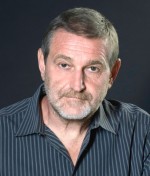

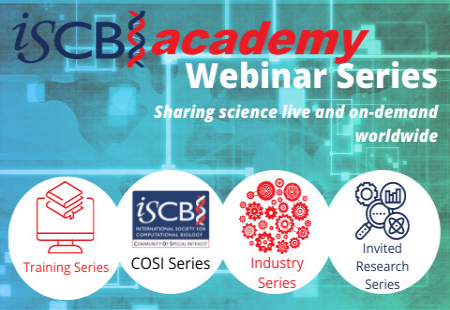

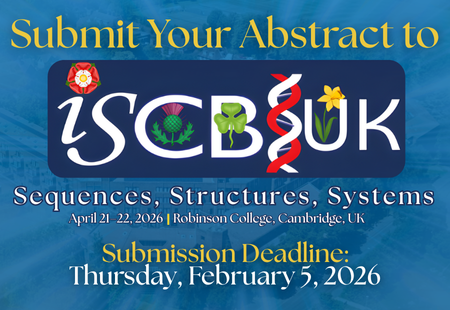
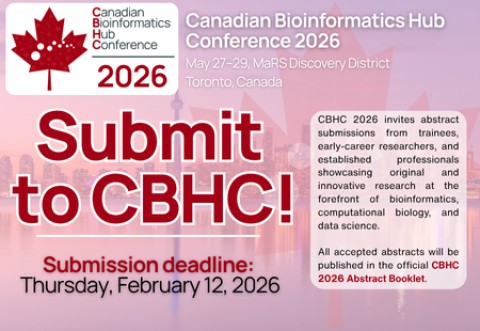
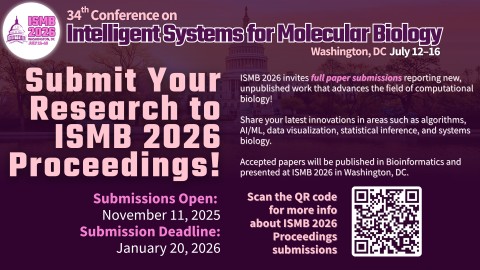

















 The Outstanding Student Paper Award is given to the student who presents the most thought-provoking or original paper at the Conference, as judged by our panel of experts.
The Outstanding Student Paper Award is given to the student who presents the most thought-provoking or original paper at the Conference, as judged by our panel of experts.
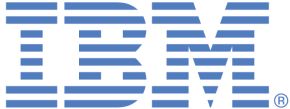

 The RCSB and PDB Poster Prize will be awarded for the best student poster presentation in the category of Structure and Function Prediction. The award will consist of a related educational book.
The RCSB and PDB Poster Prize will be awarded for the best student poster presentation in the category of Structure and Function Prediction. The award will consist of a related educational book.